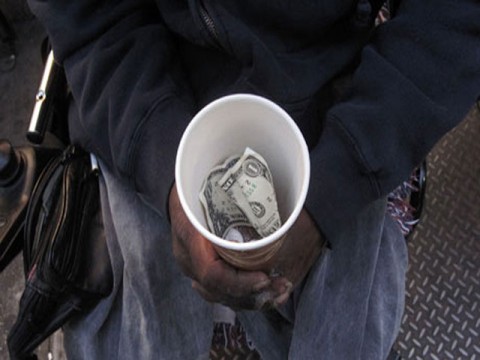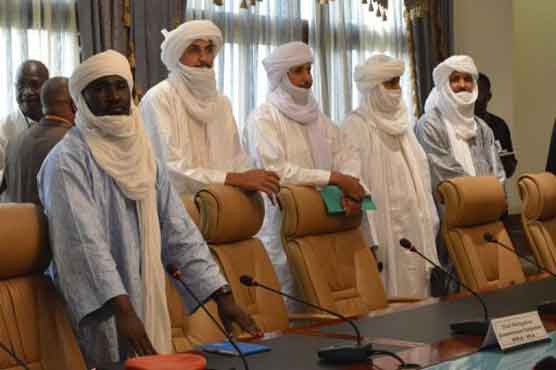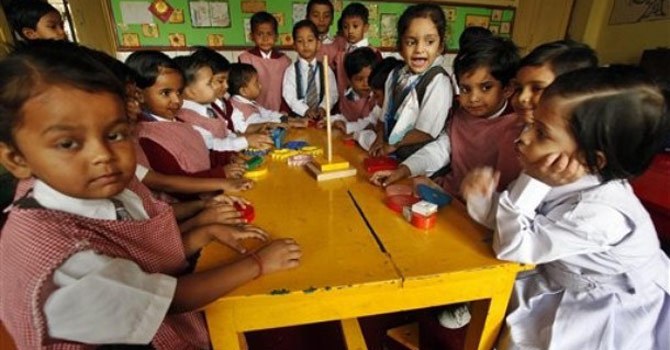- Web
- Humsa
- Videos
- Forum
- Q2A



The one comfort of government incompetence is that it is never a surprise: it is, if anything, a starting point for the public’s expectations of Washington.
Still, even that certainty doesn’t pay the bills, and that is a problem for 2.1 million Americans who have been out of work for more than 27 weeks and will be cut off from unemployment insurance tonight. No matter what happens, the fiscal cliff talks have been a failure: Congress will not achieve a “grand bargain” to save Americans from the brunt of ill-considered, sweeping tax hikes and government spending cuts.
That’s why we’d be better off talking about the “fiscal conscience”, the era of which seems to be coming to a sharp end. Unemployment is the American crisis you hear about; poverty is the one you don’t. And what the fiscal cliff covers up is what will be the slow transition of the US unemployment problem into a serious poverty problem.
The biggest failure of the fiscal conscience is the disregard for those unemployed Americans. Some of those 2.1 million Americans who stand to lose their benefits today only started collecting unemployment in July. Those who have been out of work for more than six months make up 40% of all the unemployed people in America.
The predicament of the long-term unemployed only has a passing relationship to the fiscal cliff. There happens to be no one in the government who can put their hand up and protect the unemployed. As Congress goes about wrecking confidence in the economy, there are other agencies that can pick up some of the slack.
The Treasury Department is finding room to avoid the debt ceiling. The Internal Revenue Service has said it will hold off on imposing tax increases. The Defense Department has promised it will do what it can to delay cuts. But the unemployed have no one to protect their benefits. There is no agency to buy them some time: they are at the mercy of congressional bickering.
Nothing new. For the unemployed, the fiscal cliff is the final boot on the neck of their prospects, not the first time they’ve been knocked down by an aggressive Congress. Congress has been chipping away at unemployment benefits for well over a year.
Lawmakers in Washington have been pretending to pass “extensions” to unemployment benefits, but what they have really been doing is cutting them. From 2009 to 2011, when nearly one-sixth of the country was out of work, some Americans could receive 99 weeks of unemployment insurance. This year, Congress cut that maximum down to 73 weeks and, with the help of some states, put further barriers to unemployment insurance, including drug tests and national job search requirements.
This would make sense if unemployment insurance were taking money out of the pockets of other, worthier programs; but it’s not. American taxpayers and employers pay for unemployment insurance through taxes imposed on every paycheck. When the economy is good, and few people are unemployed, the government collects a surplus, because many people are paying the unemployment tax but few are collecting it.
In that case, unemployment taxes reduce the deficit, and no lawmakers complain. When economic times turn, however, Congress rounds on unemployment benefits as deficit-burning incentivisation of laziness.
This congressional hostility towards unemployment benefits is misguided on a number of fronts. The most obvious is that employment and the economy are subject to cycles: if you’re caught in a bad cycle, just keep going until things get better. They always do. In fact, there’s already evidence that the labor market is improving, albeit at an excruciating pace.
The second problem is that the focus on unemployment benefits really covers up a bigger problem: what happens when they run out. Unemployment benefits are one economic rung above one of America’s economic plagues: growing poverty. This was an issue that briefly held the stage during the protests of Occupy Wall Street, but seems to have faded under the force of the election and the giddiness of a recovering economy and strong holiday shopping season.
The options for those without unemployment benefits are grim: unless they have family to fall back on, they have no money to pay their bills. They may immediately fall into poverty. That makes them eligible for food stamps and welfare benefits - which is a greater financial cost to government than unemployment benefits alone.
There are also other cuts embedded in the fiscal cliff that would hit the poor. Homelessness assistance would get cut by $156m, which would leave 146,000 people without a place to live, according to National Center on Family Homelessness. Another 185,000 low-income families would lose out on rental assistance.
Domestic violence programs will be cut, leaving over 100,000 families without emergency shelter services; another 170,000 people won’t get help for substance abuse. Over 400,000 people would lose out on job training and employment services.
This would occur at a time of peak poverty in the United States: the US census bureau found that 49.7 million Americans live in poverty. That number rose by 700,000 people between 2010 and 2011. Congress, always out of touch, incorrectly estimated that the number of people in poverty would not rise, but actually drop - actually drop - by 3.2 million people that year. That rift in expectations is the approximate gap between lawmakers and the real world.
That is why the fiscal cliff is not just about taxes and government spending. It’s about social conscience. The people who will be asked to be pay more in taxes are, largely, gainfully employed. But there are still 4.8 million Americans who count as long-term unemployed - that is, unemployed for more than 27 weeks - and their ranks are growing.
The fiscal cliff cuts were designed to be bad policy - so bad that no rational lawmaker would let them come to pass. Unfortunately, in the petty Washington game of score-settling and oneupmanship, rational lawmakers don’t seem to have much of a voice these days.
 India's aviation regulator said Thursday it had instructed Air India to ground its fleet of Boeing Dreamliners following similar orders from authorities in the United States and Japan.
"We have asked Air India to ground all six Dreamliners after getting an advisory from the FAA (US Federal Aviation Administration) citing safety concerns..... Read more
India's aviation regulator said Thursday it had instructed Air India to ground its fleet of Boeing Dreamliners following similar orders from authorities in the United States and Japan.
"We have asked Air India to ground all six Dreamliners after getting an advisory from the FAA (US Federal Aviation Administration) citing safety concerns..... Read more
 OUAGADOUGOU, Burkina Faso (AP) - The nation of Mali, which lost half its territory last year to rebels, has agreed to sign an accord with Tuareg separatists who still control the country s northernmost province, officials said Tuesday.
The agreement is to be signed Tuesday afternoon in Ouagadougou, the capital of Burkina Faso, where the two..... Read more
OUAGADOUGOU, Burkina Faso (AP) - The nation of Mali, which lost half its territory last year to rebels, has agreed to sign an accord with Tuareg separatists who still control the country s northernmost province, officials said Tuesday.
The agreement is to be signed Tuesday afternoon in Ouagadougou, the capital of Burkina Faso, where the two..... Read more
 President Barack Obama on Tuesday named the first female director of the Secret Service, signaling his desire to change the culture at the male-dominated agency, which has been marred by a recent prostitution scandal.
The Secret Service, charged with protecting the president and his family, has faced intense criticism for the scandal during preparation..... Read more
President Barack Obama on Tuesday named the first female director of the Secret Service, signaling his desire to change the culture at the male-dominated agency, which has been marred by a recent prostitution scandal.
The Secret Service, charged with protecting the president and his family, has faced intense criticism for the scandal during preparation..... Read more












 Clean Chit (Faisal Raza Abidi ...
Clean Chit (Faisal Raza Abidi ...  Akhir Kiyon - 16th December 2...
Akhir Kiyon - 16th December 2...  To The Point - 16th December ...
To The Point - 16th December ...  Capital Talk â
Capital Talk â  Kal Tak - 16th December 2013
Kal Tak - 16th December 2013  Bay Laag - 16th December 2013
Bay Laag - 16th December 2013  Kharra Sach - 16th December 2...
Kharra Sach - 16th December 2...  Awaam - 15th December 2013
Awaam - 15th December 2013 





 Gold Miner
Gold Miner  Superbike GP
Superbike GP  Whipsaw Fighter
Whipsaw Fighter  PacMan
PacMan 


